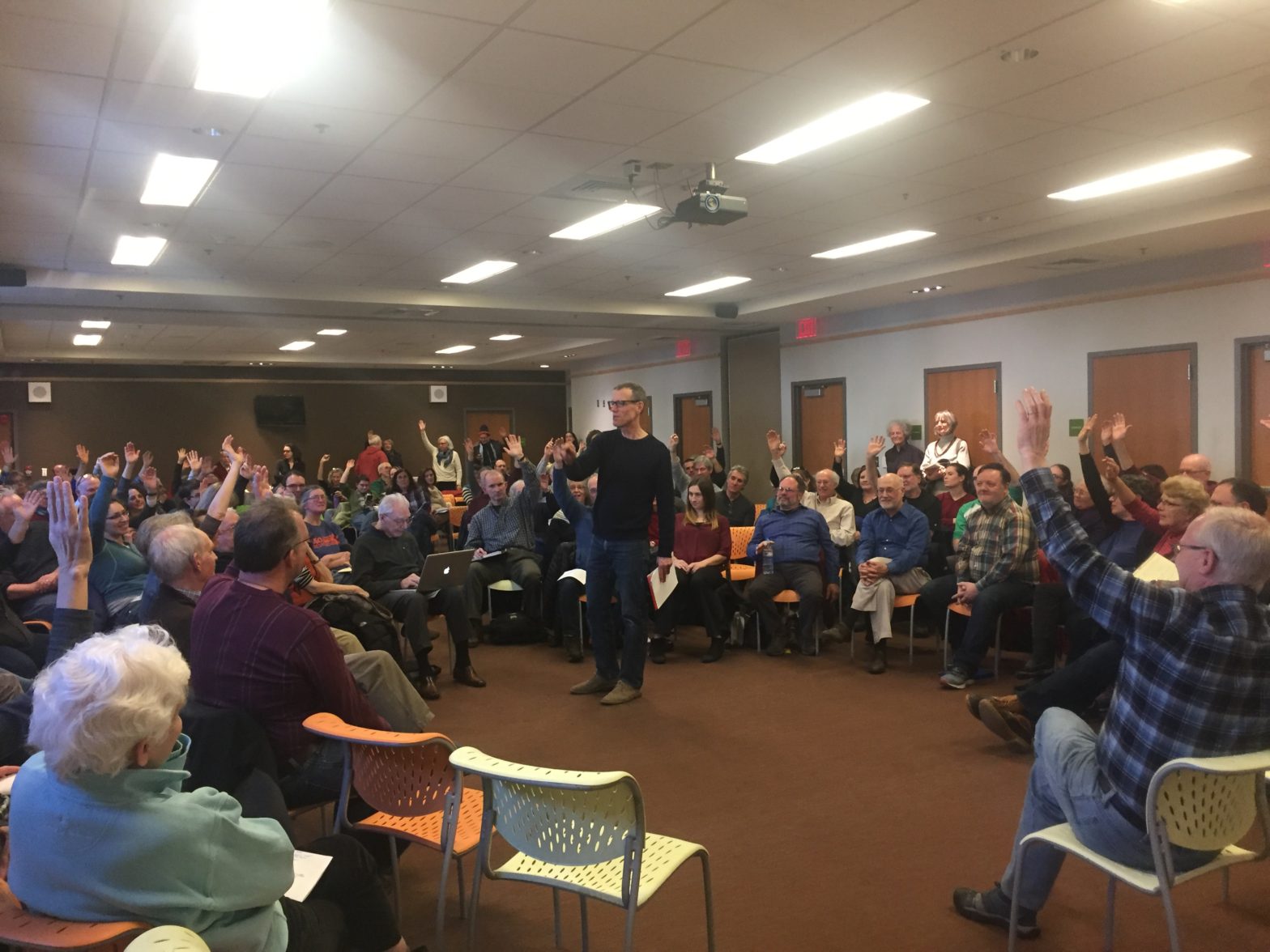On Saturday, February 18th Senator Brownsberger was joined by Senator Mike Barrett and well over 100 community members at the Watertown Library to discuss pending energy and climate legislation for the upcoming session. Senator Barrett is the Senate Chair of the Joint Committee on Telecommunications Utilities and Energy for the 2017-2018 session. Senator Brownsberger opened the meeting with general remarks about different public policy approaches to encourage energy conservation and transition to renewable sources. Senator Barrett encouraged advocates to not just call their own legislators if they care about an issue but also to call the Governor, the House Speaker, and the Senate President as well.
On solar, questions were asked about extending the Renewable Portfolio Standard to municipal utilities and new attempts to raise net metering cap. Participants also encouraged the continuation of the SREC program.
Senator Barrett’s carbon pricing bill was a popular topic, with several questions relating to the mechanics of the bill, whether there are alternatives available that would have the same effect, such as raising the gas tax, whether a tax break rather than a rebate would be effective, and whether a revenue positive bill would be politically feasible.
Senator Brownsberger raised the topic of energy efficiency and invited former Senator George Bachrach, President of the Environmental League of Massachusetts to say a few words about An Act Relative to Home Energy Efficiency. This bill sponsored by Senator Ken Donnelly, would require home sellers to obtain an energy efficiency rating and disclose it to potential buyers as part of the home sale process.
Natural gas leaks, and pipeline construction were popular topics. Bills codifying last year’s SJC decision that prohibits utilities from passing pipeline costs on to consumers and bills prohibiting utilities from charging for leaked gas were discussed.
There was a brief discussion of the bills that were filed to set state policy goals: targets for compliance with the Global Warming Solutions Act, adoption of 100% renewable energy, and other broad based omnibus bills.
The meeting concluded with an informal poll of attendees’ top priority, everyone was instructed to vote only once. The results overwhelmingly favored the carbon pricing bill:
Carbon Pricing: 60
Energy Efficiency: 16
Solar: 11
Long Term Targets: 10
Natural Gas: 8
Andrew Bettinelli
Quinn Diaz
Office of State Senator William N. Brownsberger

